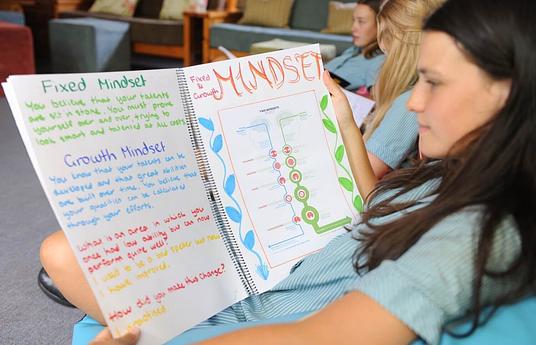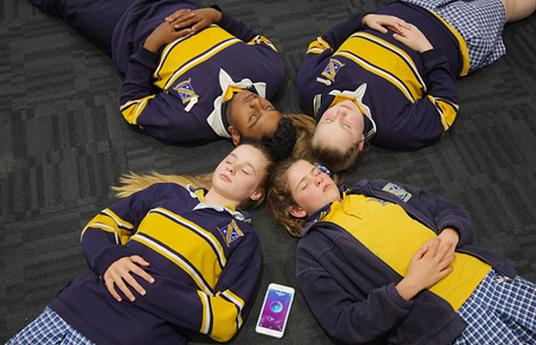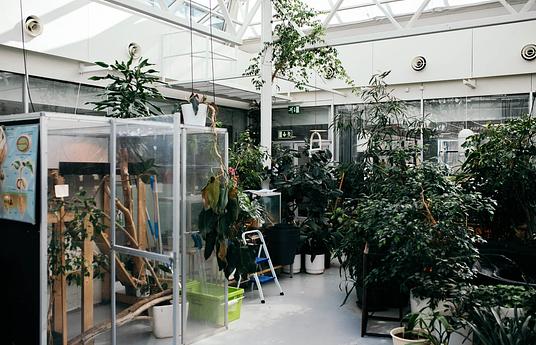It’s a worldwide epidemic: 10-20% of children and adolescents experience mental disorders, with half of all mental illnesses beginning by the age of 14. Perhaps, given the condition of modern living, it’s not all that surprising.
Pressures of normal school and family life are compounded by the fact that social media and the general doom and gloom of 24 hour news means young people are now relentlessly bombarded with reminders that not only is everyone else better and more popular than they are, but they also face an uncertain future blighted by environmental chaos, extremism and robots stealing their jobs. In fact, 1 in 10 teenagers express anxiety about current world affairs.
Then there is the issue of shrinking exposure to nature and increased screen time which some blame for the decline in child mental wellbeing. This heady cocktail of pressure and pessimism would be too much for anyone to take, never mind the fact that most young people simply aren’t being taught how to navigate this mental health maze in a healthy, sustainable way.
Early onset mental health issues can have lifelong impact, not least because they disrupt education and early careers, so it’s vital that young people receive the help they need - and fast. Suzi Godson, psychologist and co-founder of MeeTwo, explains that, as anxiety and depression are such common challenges now, we need to better equip young people as early as possible.
She says, “we see the age it starts to manifest is as young as 8, but half of all adult mental health problems have manifested by age 14 and 75% of them have manifested by the age of 21, so this is something that really has to be tackled early.” Godson goes on to explain, “We need to normalize the idea that anxiety is an everyday part of life and what we need is to know how to cope… the only thing we can do is to equip them emotionally so they can get through the difficult times.”

To be able to deal with a crisis on this scale, schools need adequate support, resources and funding. In many countries, this is still lacking. For example, a BBC report found that UK teachers have little understanding of how to help children with mental health issues, lack training in this area and a quarter wouldn’t know how to refer a young person for help.
Teachers are overwhelmed and in many cases are already having to juggle too much for one professional to bear. With so many children in the classroom and so many pressing issues demanding their attention, it’s easy for the more subtle signs of ill mental health to go undetected. Sadly, symptoms are too often missed, or dismissed, until they reach crisis stage, leaving children vulnerable to self harm, alienation, school dropout and worse. Training teachers and parents has been shown to improve detection of problems and facilitate appropriate interventions, so it’s crucial we get this right and that these conversations continue.
But, in a situation where time is tight and budgets are squeezed, what can the average teacher or principal do to support mental wellbeing in schools? According to research for BBC School Report, half of teenagers with mental wellbeing issues try to cope alone and a third said they were not confident enough to speak to a teacher.
Schools can help young people by developing a school culture that encourages students to be comfortable enough to share their feelings, but even this doesn’t guarantee a young person will open up. MeeTwo, a free mental wellbeing app designed for teenagers, provides alternative methods of seeking help for those who might usually avoid speaking to staff.

Boys in particular are less likely to seek help for mental health, leaving them at risk of harm. Suzi Godson explains how MeeTwo can help, saying “Because anonymity is central to our offer, we have a much higher percentage of boys using our app than would ordinarily be using any social media platform that was about mental health or alleviating anxiety and that’s quite difficult to do within a school setting, where any kind of counselling is face to face.”
This goes to show the importance of helping boys to find tools to explore emotional literacy and to break free of gender restraints dictating that expressing emotions or vulnerability isn’t ‘macho’. Godson continues, “boys don’t talk about it but suicide is the biggest cause of death for men under 35. It’s absolutely critical that we try to get to them early and teach them when they’re very young that it’s OK to ask for help.”
Schools can also help young people by focusing on mental wellbeing as much as mental illness. Discussion on mental health tends to be focused on the prevention and treatment of mental illness, which is of course an urgent need. But, as the World Health Organization highlights, ‘health’ constitutes complete physical, mental and social well-being - not merely the absence of illness.
Are we unwittingly short changing our young people by focusing so much on what we want to prevent, rather than what we are aiming for? Dr Kerstyn Comley, education technologist and co-founder of MeeTwo, stresses the need to shift the focus. “We need to stop talking about mental health”, she says, “and start talking about mental wellness and education is the entry point into all that. We need to give young people the skills to help them cope with the challenges they face everyday.”
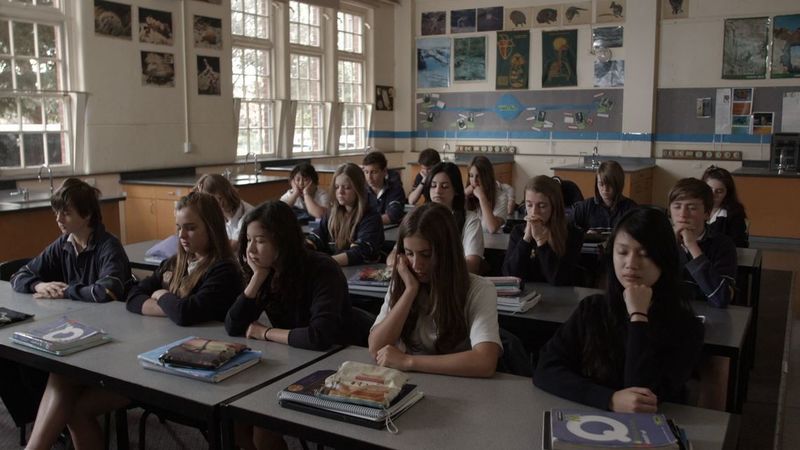
With so much stress and chaos in today’s world, a vital skill we can teach young people is the ability to quiet the chattering mind. Mindfulness is gaining ever more popularity amongst adults and is increasingly used in schools, to great effect. Research has shown that with use of Smiling Mind, a free mindfulness education app, student sleep, wellbeing, ability to manage emotions, concentration, and school behaviour significantly improved, and disruptive behaviour and bullying was reduced. Students who experienced higher levels of emotional distress before participating in the program showed the biggest improvements as a result of developing this mindfulness skill. Mindfulness can also benefit stressed out and overworked teachers, making meditation something that’s doubly worth scheduling into the school day!
Most people understand that mindfulness is a practise, something that is intentionally cultivated over time, but how do you teach character skills, like resiliency, which we tend to think come naturally through real-life events? There are many educators bringing social and emotional learning to school in innovative, impactful ways. Geelong Grammar School, Australia, is just one example of this in action.
The school is well known for its whole-school approach to Positive Education, combining the science of positive psychology with best practice teaching, to support students, staff and the wider community to flourish. Introducing Geelong Grammar’s Positive Education model at the HundrED Summit, Principal Stephen Meek explained how positive education teaches skills and knowledge to prevent ill-being, but also to promote wellbeing.
Traditional psychology has focused on healing mental distress and disorder rather than on promoting human flourishing and increasing wellbeing, and that is the gap that positive education seeks to bridge. Geelong Grammar School defines ‘flourishing’ as ‘feeling good and doing good’ and all staff and students are taught the skills to make this a reality. In fact, the school established The Institute of Positive Education in 2012 to make this a reality for children around the world - so far they have trained over 10,000 teachers in 12 countries.
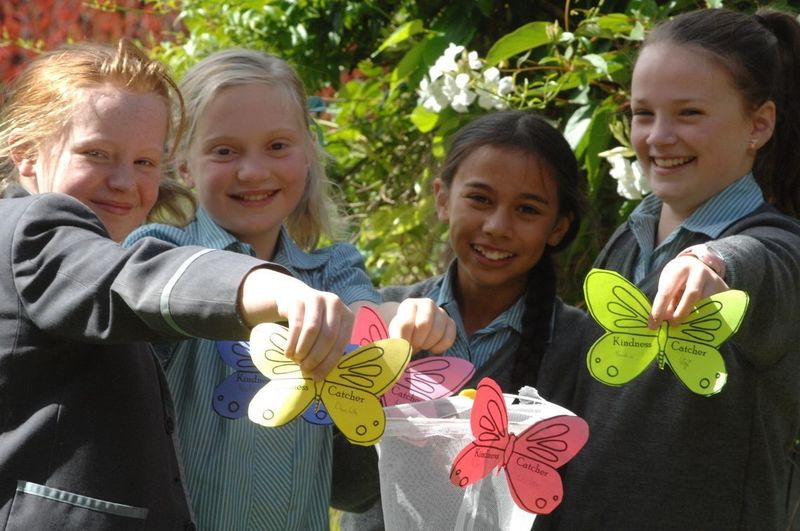
Perhaps it’s time for every school to take the lead and push for social and emotional learning to play a more central role. Dr Kerstyn Comley suggests that schools should broaden their field of vision, saying “ education should look beyond academic subjects, should look beyond just trying to teach what we’ve been teaching for the past 100 years… we need to recognise that to equip young people to go out into the world and be healthy, helpful, compassionate adults we need to teach them about relationships, how to communicate and so many other skills we just ignore in schools because we’re too dedicated to a very fixed and narrow curriculum”.
Thankfully, awareness of mental health issues is increasing, along with a push to give mental health parity with physical health in terms of funding and treatment, but around the world there is still a long way to go. Let’s change the story for young people by ensuring they get the early help they need in schools, not just to cope, but to flourish.
Watch Stephen Meek introduce Positive Education at the HundrED Innovation Summit 2017.

